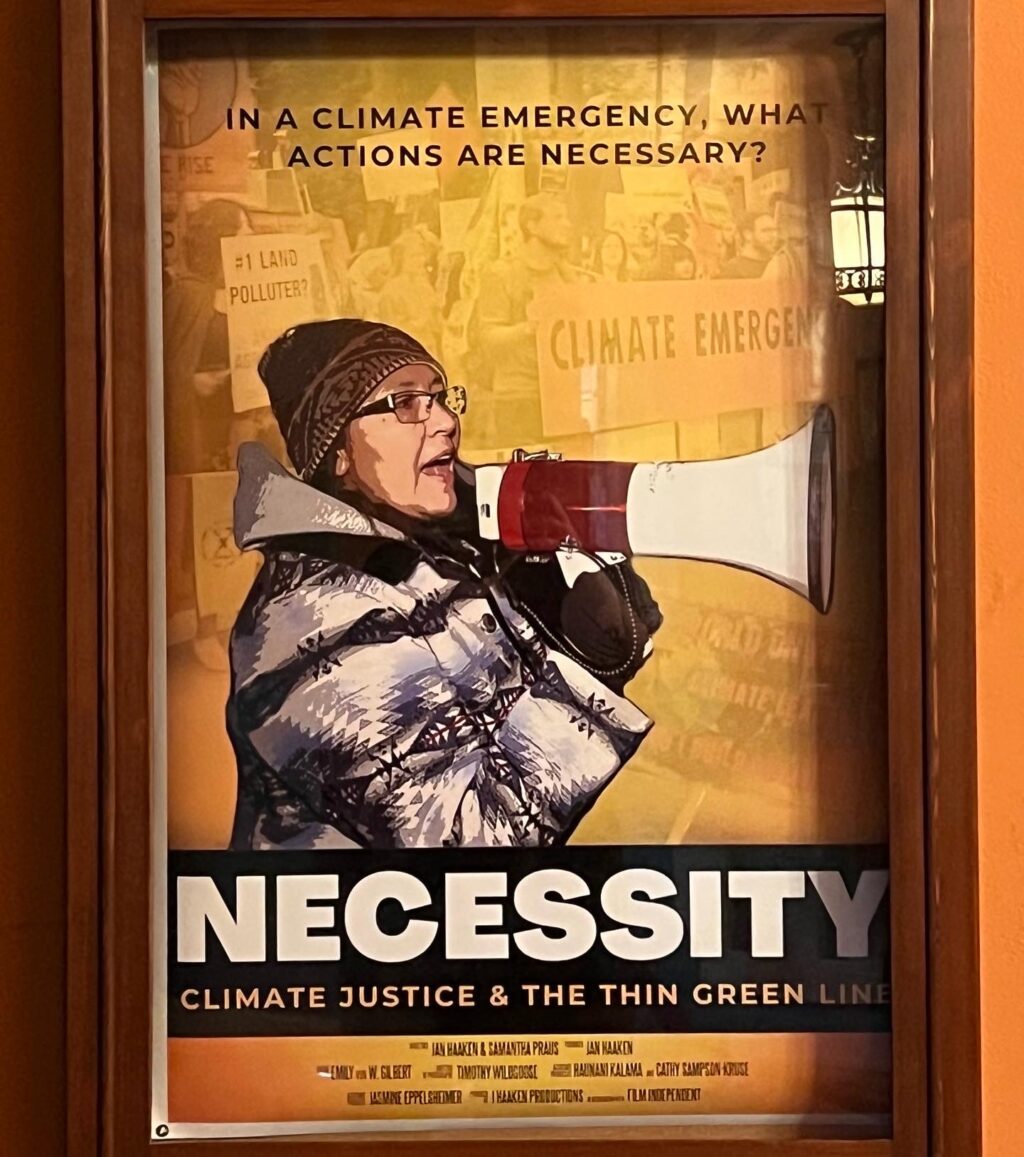In April 2019, 11 climate activists were arrested and charged with criminal trespassing after building a small garden that blocked a Portland oil terminal running Zenith Energy oil trains. Three years before, an oil train derailment in Mosier, Oregon, prompted the halt of fossil fuel projects within the Pacific Northwest and motivated those in the community to become active members of The Thin Green Line. Generated from the precedence of local protests and bolstered by Indigenous storytelling, Jan Haaken’s film “Necessity II: Rails, Rivers & the Thin Green Line,” screened at Portland’s Hollywood Theatre on April 17, narrated the dangers of climate change.
“Coming from both psychology and film, I’m interested in how communities can come together. Films often tell the story of a single person… [but] I think that there is a sturdy, strong thread that can be strung between different stories to show how we’re all connected.” – Director Jan Haaken
According to their website, The Thin Green Line is a group of people committed to documenting fossil fuel resistance in the Pacific Northwest. From covering climate change news to sharing resources, The Thin Green Line aims to uplift Indigenous voices in climate-related issues borne out of the colonization of their lands.
“Necessity II” follows three intertwining stories, including the narratives of Cathy Sampson-Kruse – who laid on train tracks to protest Zenith energy – as well as protests led by activist group Extinction Rebellion PDX, students, educators and local labor unions. Additionally, Haaken notes the combination of these narratives serves a bigger purpose of telling a congruent message.
“Coming from both psychology and film, I’m interested in how communities can come together. Films often tell the story of a single person… [but] I think that there is a sturdy, strong thread that can be strung between different stories to show how we’re all connected,” Haaken said.
Before beginning the film project, Haaken consulted a board of advisers to ensure the film was culturally appropriate, according to Art Blume, professor of clinical psychology at WSU Vancouver and adviser for the project.
“I met Dr. Haaken before ‘Necessity’ was created. We had been working together and as allies supporting the camps at Standing Rock and Cheyenne River against the [Dakota Access Pipeline]. At that time, I was president of the Society of Indian Psychologists and we were providing support on the ground for mental health [for Native activists],” Blume said. “In Indigenous psychology… we feel very strongly that our psychological health and wellbeing is inextricably tied to the health and wellbeing of the natural world. We cannot separate those things…. Psychology is a science of human behavior, and human behavior is behind the environmental degradation related to climate change.”
Encouraging dialogue surrounding the impact climate destruction has on marginalized communities is the film’s main goal. Sarah Summerhill, production assistant and social media manager for “Necessity II” says the film captures the story of resistance in the Pacific Northwest and much more.
“I’m inspired by the resilience of people who have been in this fight for so long and inspired by seeing people wake up and make climate change a part of their daily conversation.… I think [it’s important to] let yourself be inspired by the stories of activists in the film, and know that you can get involved at whatever level you’re comfortable with,” Summerhill said.
Being educated is the first step to taking action against climate change and fossil fuel industries. Viewing and sharing “Necessity” and other resources, are just a couple of ways to cultivate immediate support in your community. As stated on the film’s website, a few other ways to become involved are: joining activist organizations like Columbia Riverkeeper, supporting frontline communities, holding policymakers accountable and supporting environmental justice media.
“Necessity II” weaves together narratives of community-centered activism with Indigenous thought to tell the story of climate activism in the Pacific Northwest. The film shows that immediate action against fossil fuel companies is not only urgent, but necessary to the restoration of the health and wellbeing of our environment and community.

Arabelle is a senior studying English at WSU Vancouver.
